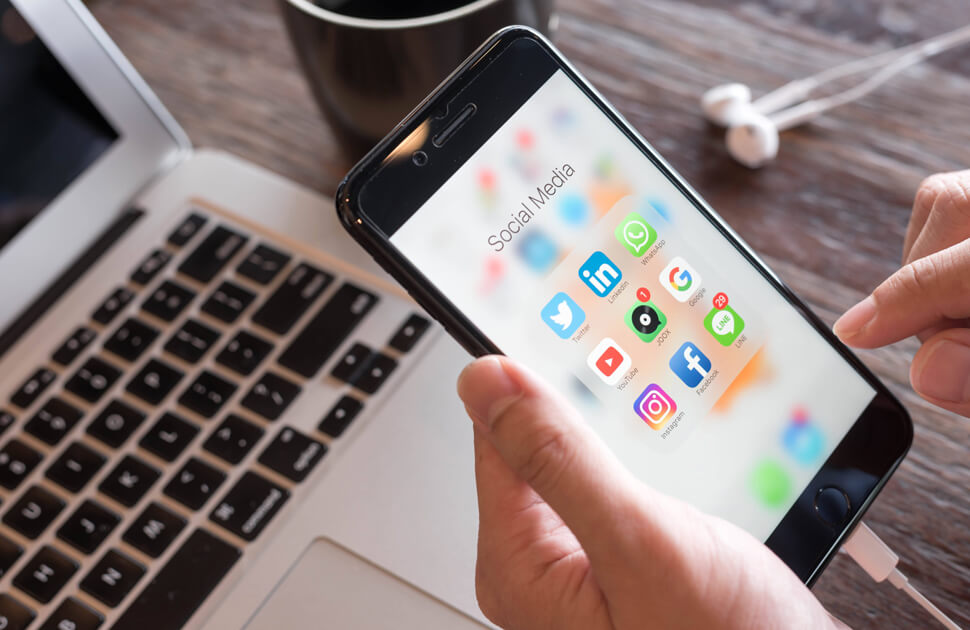In recent years, WhatsApp has become one of the most popular messaging apps, with an impressive 2 billion users worldwide.
There are more than 5 million companies in the business application and many more registered with the API version. Every day more than 65 billion messages are sent through WhatsApp.
Today’s omnichannel world consists of phone calls, texts, tweets, chats, photos, and videos, so users increasingly want to connect with a business in the same way that they connect with friends and family.
WhatsApp is free to use and offers users a more versatile messaging service. From sending, receiving and forwarding text messages that include images, videos and GIFs, as well as making and receiving calls.
Organizations can integrate WhatsApp within the cloud contact center and thus answer messages and calls from one place. In this way, companies centralize communications, optimize agent work and become ubiquitous.
5 Reasons to Use WhatsApp as a Customer Service Channel in Your Call Center
1) Get to Know Customers Where They Already Are
When was the last time you went one day without using WhatsApp? If you’re like most people, it’s on your phone or at your desk and is used daily, checking every few hours.
Without a doubt, you will be part of a group chat, be it a team chat at work or a chat with friends; WhatsApp is where most messages are sent on a daily basis.
Customers are comfortable using it, so much so that, according to a recent survey by Nielson, 53% of respondents indicated that they would rather do business with a company that they can message directly.
2) Have Richer Two-way Conversations with Customers
One of the reasons people use WhatsApp so much is the fact that they can exchange photos and videos quickly and for free. Many companies have taken advantage of this aspect to improve the customer experience (CX).
Organizations can send and receive photos, paperwork, or even brochures or product information. For example, if a customer buys a product on a website, but the shipping company accidentally damages the package, they can take a photo, send it to the WhatsApp customer service number, and instantly receive an automated message informing them about the current response time.
Once the agent responds, they send a printable prepaid QR code for the return and advise the customer of the return process and what to expect. As a result, the client has not had to take the time of their day to call you and their inquiry is dealt with efficiently.
3) Being Able to Participate Globally
WhatsApp’s 2 billion customers are based in 180 different countries and use the platform in 60 different languages, as well as being the # 1 messaging app in 104 of those countries.
WhatsApp makes it much easier for customers traveling or abroad to communicate with businesses quickly, easily, and free of charge. So if an organization has a global reach, the WhatsApp API is a cost-effective and efficient way to reach them.
4) Have a Number for Several Users Who Are Always Connected
Unlike the regular WhatsApp application platform, the WhatsApp API is always connected to the cloud. This means you don’t have to rely on phones being on for messages to get through.
It can be available to customers 24/7, if needed or if a message arrives after hours, you can set up automatic message replies to inform customers about the expected response time.
The WhatsApp Business API is connected to a number, but can be accessed by hundreds of users, which means that the next available agent can always answer an incoming WhatsApp.
5) It Is Private, Safe and Reliable
With end-to-end encryption and compliance with strict regulations in each country, WhatsApp is strict in protecting user privacy.
Not only that, WhatsApp has strict controls to verify a business before it can connect to the WhatsApp API, and the protection works further due to WhatsApp’s two-factor identification.
As an official business account, you will get a “green check mark” badge on your profile and in the headings of your chat conversation, helping you build more trust in your business and building your brand.
In conclusion, companies are changing the way they communicate with customers through WhatsApp, as it really facilitates two-way communications. This messaging app is not only a great platform to reach customers, but they expect WhatsApp to be a way to communicate with a company.
The use of WhatsApp is growing year after year and is used by more than 54% of Millennials and 35% of Baby Boomers, giving it a great reach that cannot be ignored.
 Subscribe
Subscribe
 Ask for a demo
Ask for a demo

 4 min
4 min
